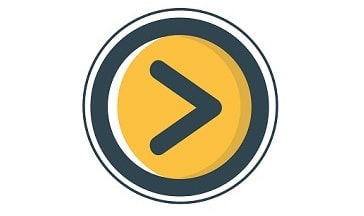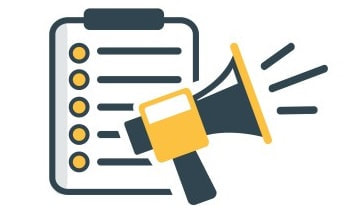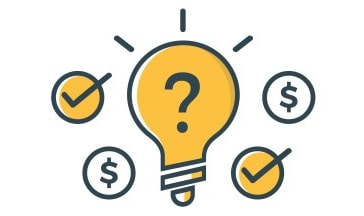KiwiSaver First Home Grant - Discontinued from 22 May 2024
The First Home Grant was discontinued on 22 May 2024 - this guide will be deleted in late 2024 once all existing applications are processed.
Updated 19 July 2024
The First Home Grant was discontinued on 22 May 2024 - this guide will be deleted in late 2024 once all existing applications are processed.
Legacy information:
This guide walks you through what you need to know, the requirements, limitations and tips to make your KiwiSaver balance go as far as possible when buying your first home.
This guide covers:
The First Home Grant was discontinued on 22 May 2024 - this guide will be deleted in late 2024 once all existing applications are processed.
Legacy information:
This guide walks you through what you need to know, the requirements, limitations and tips to make your KiwiSaver balance go as far as possible when buying your first home.
This guide covers:
First Home Buyers Grant - What You’re Entitled to and How You Can Get It
The KiwiSaver First Home Grant Explained
If you've contributed on a regular basis to KiwiSaver for at least three years, you may be eligible to the First Home Grant, with a cash payment of between $3,000 and $10,000 depending on your circumstances and type of home you are buying.
Making Sense of the Eligibility
There are a number of requirements for a First Home Grant, we outline them below.
Making Sense of the Eligibility
There are a number of requirements for a First Home Grant, we outline them below.
- You are aged 18 years or over
- You currently do not own a home or land
- You have never received the First Home Grant, nor its predecessor, the 'KiwiSaver deposit subsidy'
- You are a member of a KiwiSaver scheme, complying fund or exempt employer scheme
- You have contributed at least the 'minimum allowable percentage' of your total income to a KiwiSaver scheme, complying fund or exempt employer scheme for at least three years. The minimum allowable contribution percentage is, from 1 April 2013:
|
- You are the sole buyer and have earned $95,000 or less in TOTAL (before tax) in the last 12 months. If you had a pay rise above $95,000, you might still be eligible as the First Home Grant considers the total amount earned in 12 months.
- If you are two or more buyers, you must have earned a combined income of $150,000 or less in TOTAL (before tax) in the last 12 months.
- If you are a sole buyer and have one or more dependents, the income limit is $150,000 in the last 12 months.
- You have a deposit that is 10 percent or more of the purchase price. The 10 percent deposit includes:
|
- You are buying one of the following types of property and land arrangements:
- fee simple (i.e. a freehold property)
- stratum estate (freehold and leasehold)
- cross-lease (freehold and leasehold)
- leasehold
- Maori land
- If you are purchasing the property with other people, it must be in equal shares, i.e. if there are 4 of you, you each own a 1/4 share; for 3 of you it would be a 1/3 share, etc.
- The purchase price of the property is within the regional house price cap:
| Region | Existing properties ($) | New properties ($) |
|---|---|---|
| Far North District | 400,000 | 675,000 |
| Whangārei District | 600,000 | 800,000 |
| Kaipara District | 525,000 | 875,000 |
| Auckland | 875,000 | 875,000 |
| Thames-Coromandel District | 875,000 | 925,000 |
| Hauraki District | 550,000 | 650,000 |
| Matamata-Piako District | 625,000 | 800,000 |
| Hamilton Urban Area (Hamilton City, Waipā District, Waikato District) | 650,000 | 775,000 |
| Ōtorohanga District | 400,000 | 650,000 |
| South Waikato District | 400,000 | 650,000 |
| Waitomo District | 400,000 | 650,000 |
| Taupō District | 575,000 | 825,000 |
| Tauranga Urban Area (Tauranga, Western Bay of Plenty District) | 800,000 | 875,000 |
| Rotorua District | 525,000 | 650,000 |
| Whakatāne District | 500,000 | 800,000 |
| Kawerau District | 400,000 | 650,000 |
| Ōpōtiki District | 400,000 | 650,000 |
| Gisborne District | 450,000 | 650,000 |
| Wairoa District | 400,000 | 650,000 |
| Napier-Hastings (Napier City, Hastings District) | 625,000 | 825,000 |
| Central Hawke's Bay District | 500,000 | 650,000 |
| New Plymouth District | 525,000 | 675,000 |
| Stratford District | 400,000 | 650,000 |
| South Taranaki District | 400,000 | 650,000 |
| Ruapehu District | 400,000 | 650,000 |
| Whanganui District | 425,000 | 650,000 |
| Rangitikei District | 400,000 | 650,000 |
| Manawatū District | 525,000 | 650,000 |
| Palmerston North City | 575,000 | 700,000 |
| Tararua District | 400,000 | 650,000 |
| Horowhenua District | 525,000 | 650,000 |
| Wairarapa (Masterton District, Carterton District, South Wairarapa District) | 600,000 | 800,000 |
| Wellington Urban Area (Kāpiti Coast District, Upper Hutt City, Porirua City, Lower Hutt City, Wellington City) | 750,000 | 925,000 |
| Nelson-Tasman (Nelson City, Tasman District) | 650,000 | 875,000 |
| Marlborough District | 550,000 | 650,000 |
| Kaikōura District | 700,000 | 700,000 |
| Buller District | 400,000 | 650,000 |
| Grey District | 400,000 | 650,000 |
| Westland District | 400,000 | 650,000 |
| Hurunui District | 425,000 | 650,000 |
| Christchurch Urban Area (Waimakariri District, Christchurch City, Selwyn District) | 575,000 | 775,000 |
| Ashburton District | 400,000 | 650,000 |
| Timaru District | 400,000 | 650,000 |
| Mackenzie District | 500,000 | 650,000 |
| Waimate District | 400,000 | 650,000 |
| Waitaki District | 400,000 | 650,000 |
| Central Otago District | 525,000 | 800,000 |
| Queenstown-Lakes District | 875,000 | 925,000 |
| Dunedin City | 500,000 | 675,000 |
| Clutha District | 400,000 | 650,000 |
| Southland District | 500,000 | 650,000 |
| Gore District | 400,000 | 650,000 |
| Invercargill City | 400,000 | 650,000 |
Source: House Caps as at 15 May 2023
First Home Buyers Grant: What's the amount I'm entitled to?
If you've met all of the criteria above and your property is within the home price cap, you are likely to receive a free KiwiSaver First Home Grant. The next step is to calculate the amount of First Home Grant you are entitled to; generally, the longer you've contributed to KiwiSaver, the higher your grant. And if you're buying a brand new home, you will be entitled to even more money.
If you are purchasing an existing/older home
The First Home Grant is $1,000 for each year of KiwiSaver (or qualifying scheme) contributions, specifically:
If you are purchasing a new home, a property bought off the plans or land to build a new home on:
The First Home Grant is $2,000 for each year of KiwiSaver (or qualifying scheme) contributions, specifically:
If you are purchasing an existing/older home
The First Home Grant is $1,000 for each year of KiwiSaver (or qualifying scheme) contributions, specifically:
- If you have 3 years of contributing, you're entitled to $3,000 (the minimum you can get)
- 4 years = $4,000
- 5 years = $5,000 (the maximum you can get).
If you are purchasing a new home, a property bought off the plans or land to build a new home on:
The First Home Grant is $2,000 for each year of KiwiSaver (or qualifying scheme) contributions, specifically:
- If you have 3 years of contributing, you're entitled to $6,000 (the minimum you can get)
- 4 years = $8,000
- 5 years = $10,000 (the maximum you can get).
First Home Buyers Grant: Earning Limits Explained
Every New Zealander is different, and the earning limits will arguably be fair to some and not others. Even a $2 salary difference can make a huge difference when it comes to putting together your home deposit. For example, if you're a couple earning a total of $130,001 you're entitled to $0 whereas the same couple earning $129,999 could be eligible for up to $20,000. This is what the law is - there is no way around it. You may feel this is unfair if you're earning above the threshold but other New Zealanders could argue you're earning far more than a lot of other people. Wherever you sit in the earning spectrum, if you're eligible for the First Home Grant then it's in your interest to apply for it and do your best to secure it.
Do you exceed the $95,000 or $150,000 earning limit?
Do you exceed the $95,000 or $150,000 earning limit?
- Kāinga Ora – Homes and Communities (previously known as Housing New Zealand) will assess if you earned $95,000 or $150,000 in total over the 12 months before you apply.
- If you've had a pay rise in the last 12 months to over the earning limit, you may still qualify as Kāinga Ora looks at the total salary you were actually paid - for example, if your salary jumped from $80,000 to $100,000 in March and you apply in April, the total salary for the last 12 months would be somewhere around $83,000.
- If your company offers a share-based incentive plan, i.e. sacrificing salary for shares in the company you work for, this also lowers your total salary as it is assessed on a cash basis.
- DO NOT approach your employer asking for a temporary pay reduction to meet the earning limits - this is fraud and no employer with any sense would oblige. You also risk your job by asking - so don't.
Must Know Facts and Tips About Getting a First Home Buyers Grant
Plan Ahead and get 'pre-approved' even if you have not decided on a property - the KiwiSaver First Home Grant CANNOT be paid out after settlement has occurred
Once Kāinga Ora is happy, you'll receive your money and be one step closer to homeownership. |
Buying a new home? Make sure it qualifiesA "new home" is considered "a home which received its building code compliance certificate less than six months before Kāinga Ora receives your KiwiSaver First Home Grant application".
But there are some essential requirements:
|
Buying a home off a plan? First Home Grant can be paid before settlement to meet deposits and/or progress paymentsBuying a new home is different from buying an existing property - in many cases you will agree to make initial payments or progress payments to help the builder or developer secure financing to undertake the project. These payments can come from the First Home Grant, but, the money must be held in trust, escrow or a similar arrangement, with payment only going to the developer only upon settlement.
Our view is simple - if you are buying a home off a plan, get legal advice to make sure you fully understand such an agreement and the obligations you have. Your developer will need to be aware that the First Home Grant you are entitled to will be held in trust or escrow until the settlement date. |
The government monitors if you rent your entire home out instead of living in it, and some grant recipients have had to pay it back (but renting a spare room is fine)Received a First Home Grant and later decided to rent out your entire home to tenants? Make sure you comply - if you've owned the property for less than six months and you rent it out, you may find yourself in breach of the First Home Grant's terms and conditions. The Government and lenders make sure you're abiding by what you signed up to, as reported in this Radio NZ story, with checks such as:
Renting a spare room (or as many as you have) is fine, as long as you continue to permanently live in the property. |
Plan early - Kāinga Ora takes AT LEAST 20 working days to process a First Home GrantKāinga Orarecommends applicants get organised early and allow for delays if questions are raised. If you need to apply for the grant to meet your financial obligations in a property's agreement for sale and purchase, a lead time of at least 20 working days before your home purchase's unconditional date is the minimum recommended application submission time frame.
|
Leave your First Home Grant application too late and you could miss out on the money altogether!Kāinga Ora advises that if grant applications are not submitted with the required four weeks’ notice, you run the risk of them being rejected and therefore the KiwiSaver First Home Grant may not be paid out. If your purchase settles before you receive your grant, you won't be able to get the money at all. This is because, as outlined below, First Home Grants can only be paid BEFORE settlement has occurred.
|
If you are going on maternity leave, you will probably need to make voluntary KiwiSaver contributions to be eligible for a First Home GrantThis is a common problem with young New Zealand families - the mother has a child, takes 12 months off work, and then is not eligible for a First Home Grant because KiwiSaver contributions were not made during the time off work.
This article from Stuff outlines the issue specifically for a Christchurch woman - our view is that if you are going on maternity leave, you'll need to arrange with your provider to make manual, voluntary contributions to meet the 3, 4 or 5 years of contributions test. |
Buy a home as a couple or in a group and you could power up the total grantThe First Home Grant allows you to buy a property with other people, which means putting together financing could be a little easier. However, there is a grant cap per property:
Whoever meets the eligibility criteria will receive a share of the total grant in accordance with their individual contributions history as long as they have not received the grant before (or received its predecessor, the KiwiSaver deposit subsidy).
|
For existing home purchases, the First Home Grant CANNOT be paid as part of the deposit pre settlement - this includes the deposit after an auctionFor the purchase of older/existing properties, the earliest your First Home Grant can be paid is on the morning of the property settlement, i.e. the day that you own your home. There are no exceptions to this. The purpose of the First Home Grant is to lower the total amount of mortgage you need to borrow.
Auctions and Deposits: If you have successfully won a property at an auction, you may have to pay a deposit to secure the rights to purchase the property. The First Home Grant CANNOT be used to pay this cost - you will need to have your own savings. |
Frequent Asked Questions - First Home Grant
As well as reading the FAQs below, it's important to know that:
- You must have made three years of contributions to KiwiSaver that meet the threshold
- Your income must be below $95,000 (for an individual) or less than $150,000 (for a couple buying a home together or an individual with one or more dependants) AND
- The property must be priced under the cap for the region - for example, you won't qualify if you're planning to buy an existing $800,000 home in Auckland as the cap is $600,000.
Do I need to be a KiwiSaver member to apply for a First Home Grant?Yes - and you'll need to have been contributing for at least three years. If you are unsure, contact your KiwiSaver scheme and they'll be able to determine if you qualify or not. If you are just short of a few months, you need to continue contributing until you reach the threshold and then can formally apply for the First Home Grant.
|
I am self-employed, do I qualify for the First Home Grant?This depends on your income and contributions. If you have contributed at least three years in total to KiwiSaver and earn below the $95,000 individual or $150,000 group limit for the last 12 months on the date you apply, you should qualify. You'll need to check your contributions have met the threshold - your KiwiSaver provider will be able to assess this for you.
|
I have had a number of employers in the last few years - do I qualify for the First Home Grant?Yes, as long as you have met the minimum contributions depending on your employment background. First Home Grant only considers whether you've made 3, 4 or 5 years of contributions, so if you've made 3.5 years you won't qualify for a higher grant than the 3-year level.
It's important to know that the 3, 4 or 5 years don't have to be consecutive - if you've gone overseas, been in between jobs and/or gone on maternity leave, Kāinga Ora only looks at the total years contributed so you are not penalised. As a guide, the following income types would require the associated number of contributions: Salary & wage earners – automatic deductions from salary & wages - add up the number of months you contributed, divide it by 12 (i.e. 12 months per year) and you'll have the number of years you contributed to. Self-employed or beneficiary – voluntary contributions - as these are made (at least) annually, add up the number of years where you made contributions and if it is 3 or above, you have met the contribution requirement. Mixed salary/waged/benefit and self-employed – if you've experienced a number of employment situations, combination of automatic and voluntary contributions. The total number of months in which regular contributions are received divided by 12 – salary/wage portion Plus the number of contributions per number of years of self-employment/beneficiary income equals or exceeds the relevant period for which the grant is sought (3, 4 or 5 years) – self employed/benefit portion. |
Do I apply for the KiwiSaver First Home Savings Withdrawal on the same form as my First Home Grant?No. They are separate processes and need to be applied for on different application forms. To withdraw your KiwiSaver contributions, you will need to contact your KiwiSaver scheme provider directly and follow their process.
|
I've been living overseas and have just come back to New Zealand and want to buy a home - can I get the First Home Grant?The answer is simple - it depends on the contributions you have made; unless you have contributed to KiwiSaver for a minimum of three years, you won’t be eligible. This means if you left New Zealand in 2016 but contributed from 2012 to 2015, you would most likely be eligible. To be sure, you'll need to submit an application with your KiwiSaver contribution statement - see the application process below for more details.
|
What does "new property" mean, and does it include a new apartment?"New property" is defined by Kāinga Ora as:
|
I have an existing agreement to buy a house/land package (or apartment) a few months ago. The development has not completed yet - can I apply for a First Home Grant?Yes, in most situations, you are eligible as you are not a "homeowner" yet by definition, and if you still have 4+ weeks before the settlement date, there is enough time to process the application. Any funds granted would be given to your lawyer and held on trust until settlement date.
|
Tips for Talking to Banks and Mortgage Brokers with Confidence
Mortgage Brokers
Our view is that mortgage brokers are a first home buyer's best friend and a good mortgage broker can even teach you how the whole house-buying process works. Of course, make sure you do your research - our guide to mortgage brokers is a great place to start.
Banks
- Mortgage Brokers are professionals who can offer a lot of guidance when buying a house, as well as get you bank-beating mortgage rates.
- Mortgage Brokers can be found all over the country. They offer advice for free and help you navigate the process of being a home owner.
- Best of all, you don't pay them. Mortgage brokers make their money from commissions they earn when you sign up for a mortgage - but you're under no obligation to choose one of their deals if you can get a better deal by yourself.
Our view is that mortgage brokers are a first home buyer's best friend and a good mortgage broker can even teach you how the whole house-buying process works. Of course, make sure you do your research - our guide to mortgage brokers is a great place to start.
Banks
- The best approach is to contact 3 or 4 banks and ask them what their best interest rate is - what you see advertised is often not what you will be offered. You can take the quotes you receive to the banks and ask them to beat each other.
- You will need to know how much KiwiSaver funding you can obtain (either First Home Grant and/or Withdrawal). You're generally at an advantage for your first home purchase where you can do a quick settlement on a house if the vendor wants that, because it lets you negotiate a good purchase price.
Related Guides
- Mortgage Calculator
- Mortgage Brokers
- KiwiSaver Hardship - if you're a KiwiSaver member and struggling with your finances, our guide explains everything you need to do to ask for an early redemption
- Contributions holiday - if you're wanting to take a break from contributing, our guide explains your options
- KiwiSaver First Home Withdrawal Guide - if you want to use your KiwiSaver balance for a house deposit, our guide explains everything you need to know
- Your contributions - You can choose how much to contribute. Find out what happens when you go on leave, receive a benefit or entitlement, or have a tax debt
- Your employer's contributions - If you're a KiwiSaver member making contributions from your pay, your employer will also contribute to your KiwiSaver savings
- Government contributions - To help you save, the Government will make an annual contribution towards your KiwiSaver account as long as you meet certain conditions.
- Voluntary contributions - make voluntary contributions (or lump sum payments) at any time, either directly to your KiwiSaver provider or through Inland Revenue
- KiwiSaver and tax - KiwiSaver contributions are deducted from your before-tax pay, and our guide explains everything you need to know.
- How to check your KiwiSaver contributions - Keeping track of your KiwiSaver contributions is easy with 'My KiwiSaver'
- KiwiSaver Withdrawal - If you joined KiwiSaver on or after 1 July 2019, you can withdraw your savings when you qualify for NZ Super (currently 65)
- KiwiSaver Providers - You can choose which scheme to join, even if you're provisionally allocated to an employer-chosen/default scheme
- Opting out of KiwiSaver - If you're a new employee who's been automatically enrolled, you can choose to opt out of KiwiSaver
- KiwiSaver Fund Selection Guide - 10 Must-Know Facts Revealing Everything You Need To Know About KiwiSaver
- KiwiSaver Calculator - our retirement calculator considers KiwiSaver contributions, how much you earn right now, how much you plan to spend during retirement, and how old you are, among other factors





















